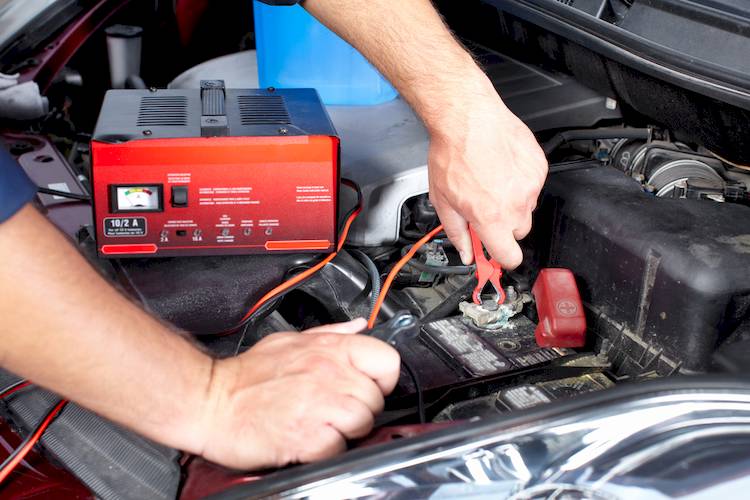

A vehicle's battery is one of the most important components to any vehicle. It is responsible for starting the engine, and without it, the vehicle cannot start. Throughout their service life batteries are subject to constant cycles of charging and discharging, as well as high heat conditions from the engine bay where they are most commonly installed. Since they serve the important purpose of getting the engine started, when they do fail, they can leave the vehicle stranded and cause a big inconvenience for the driver, so they should be replaced as soon as possible.
1. Rotten egg smell
One of the first symptoms of a problem with the battery is a rotten egg smell. Conventional acid lead automotive batteries are filled with a mixture of water and sulfuric acid. As the battery wears, some of the acid and water may evaporate which will disturb the mixture. This may cause the battery to overheat or boil, which will produce an unpleasant smell, and even smoking in more severe cases.
2. Slow cranking
One of the first signs of a problem with the battery is a slow cranking engine. If the battery is low, it may not have enough power to turn the engine as quickly as it normally would, and it will crank slowly as a result. Depending on the exact condition of the battery, the engine may crank slowly and still start, or it may not be able to crank fast enough to start at all. A jump start from another vehicle or battery will usually be enough to get the vehicle going for a battery that is cranking slowly.
3. Battery Light comes on
Another symptom of a potential problem with the battery is an illuminated Battery Light. An illuminated Battery Light is a symptom commonly associated with a defective alternator. However, a defective battery can also set it off. The battery not only serves as the power source to start the vehicle, but also as a stable source of power for the entire system. If the battery fails to receive or sustain a charge, even if the alternator is charging the battery, the system will not have a power source to help stabilize the system, and the Battery Light may be activated. The Battery Light will stay on until the battery eventually fails.
4. No power to vehicle electronics
Probably the most common symptom of a battery problem is no power going to the electronics. If a battery goes bad or becomes drained, it may not hold a charge and will not be able to provide power for any of the vehicle’s electronics. Upon entering the vehicle, you may notice that turning the key does not activate the electrical system, or that the lights and switches are not functioning. Usually, a battery drained to this extent will need to be charged or replaced.
The battery in a car serves a very important function, and without it, the vehicle will not be able to start. For this reason, if you have been experiencing slow cranking, or suspect that your battery may be having an issue, you can try checking the battery yourself or have the vehicle's battery diagnosed by a professional technician, such as one from YourMechanic. They will be able to replace your battery or address any other underlying issues to get your car back to its full function.



